#AI Ad Copy Generator
Explore tagged Tumblr posts
Text
🔥🔥🔥Advertmate Review: Run Pro-Level Ads Without the Hassle

AdvertMate is designed to make advertising simple. Instead of spending hours writing ad text, designing images, and tracking performance, this AI tool does it all for you.
It works on eight major ad platforms, including Facebook, Google, YouTube, TikTok, Twitter, LinkedIn, Pinterest, and Snapchat, allowing businesses to launch ads without manually logging into each platform.
>>>Read More
0 notes
Text
I think we could all stand to unpack our feelings about societal standards of Intelligence and why it's important to us that someone else is less intelligent & capable
#i'm tireddddd#i know many of these ai posts are made jokingly but#it makes me tired how quick people are to make fun of others for needing help with communication#as though it's completely absurd that some people might need help writing an email or putting together a shopping list#missing the more pointed and relevant critique of ai writing which is that it is mainly a mediocre tool for companies to save on costs#at the expense of both their employees and the general public#that the advertising industry has become so bloated and inescapable that there's a robot made to write bad ad copy#and useful articles are buried under ads disguised as articles#and that most writers were not making a living off their writing before and were doing it out of enjoyment#meaning ai writing is missing the point and is mainly useful to grifters#all in all i do not care some students are cheating. that has been going on since the beginning of time#i care that employers are exploiting people
91 notes
·
View notes
Note
Do you use AI generators to compile or scrape this information?
no
#anonymous#ai has nothing on an over-caffeinated human being copy pasting & taking screenshots past 3 in the morning & queuing everything#no but on a serious note most of these is the product of years of compilations stuck in my drafts & old files as a student#been going through my old bookmarks as well (bc need more space) so there may be random study notes or tips sometimes#thats also why i have a lot of grammar related stuff that i used at school --- still handy notes though#as for the requests i usually do them in one sitting & queue them -- not claiming to be an expert on those topics#i just try to look for the best sources i can -- which is fun bc i learn a lot as well &#i always appreciate when people send me more info or corrections#this genuinely made me a bit self conscious of my posts tho like do they look AI generated#just shoved a lot of queued posts back to my drafts lol will try to edit them better soon i know its a mess here !#also acccidentally clicking the 'shuffle' queue messed up the chronology at one point -- so been trying to schedule posts#instead of adding to queue ---- but will reorganise when i find more time#but yeah most of these are my literal notes -- excerpts / literally copy pasted from my references that may be quite outdated#that i need to delete but still wanted to save elsewhere
66 notes
·
View notes
Text
me: hey tumblr can you stop showing me AI porn ads while I'm in class
tumblr: Customize your AI girlfriend completely! Everything is under your control! 🌟She responds fully to every thought and need; anytime, anywhere, enjoy an unlimitedly free companion experience. 💕Start now, and embark on a wonderful journey with your AI girlfriend! ✨
#GGIGSTIIVVXHSAH#I'M SO SICK OF IT#I don't want an ai girlfriend#Btw that was literally copy pasted from one of their ads#fuck ads#fuck ai#anti generative ai
7 notes
·
View notes
Text
I'm wondering if anyone missed the part of Indigo Park where it said that it was a passion project??
It's always people saying " This is a Garten of Ban Ban rip-off " or " This is a Poppy Playtime rip-off "
Plus, the creator of Indigo Park, UniqueGeese, is also listening to people and is currently trying to add an update to the game to make it better for the fans
Not to mention the amount of people calling it a cashgrab
He only made merch because people wanted it and he did talk about people keep buying bootleg merch, I have seen a comment where someone said " Maybe they wouldn't have to buy bootlegs if you put stuff out ", so I guess putting out an official shop would be the right way to at least stop people from buying bootlegs, not to mention that the game is free
#I have talked about this before but it does feel like people are not looking at it the right way#I do get opinions and just general criticisms#But it feels like some people are overlooking it#Something shouldn't be called a rip-off if the creators took inspiration from them#Something has to start somewhere#Technically everything is a ' copy ' of something else#someone said that ' the game looks like something that chat gbt would spit out ' and it feels so wrong to see it like that#*cough cough* bokkie is a game that's actually low effort and it's mostly ai#I know that it's just an opinion and you are allowed to have opinions#But it feels like it's just discrediting the passion put into the game#Plus the creator is trying to update the chapter and adding in more ' quality ' to it#He does realize the flaws and he is listening to criticisms#Maybe it's just me being way to passionate about the game#But it's just my feelings on everyone missing the point#indigo park
9 notes
·
View notes
Text
Ad Copy AI: The Future of Persuasive Marketing

Businesses constantly search for innovative ways to craft compelling messages that drive engagement and conversions. One of the most groundbreaking advancements in this domain is ad copy AI, a revolutionary tool that leverages artificial intelligence to generate high-performing advertisements. This technology is not just a convenience; it’s a game-changer, enabling marketers to produce persuasive, data-driven copy at an unprecedented scale.
How AI is Transforming Advertising Copy
Traditionally, writing ad copy requires a deep understanding of consumer psychology, creative thinking, and A/B testing to determine what resonates with audiences. However, by evaluating enormous volumes of data to forecast and produce successful advertising material, AI-powered solutions have greatly streamlined this process.
By utilizing machine learning algorithms, AI can craft copy that aligns with audience preferences, optimizing word choice, tone, and structure for maximum impact. Whether for social media ads, Google Ads, or email campaigns, AI guarantees that your messaging is both entertaining and conversion-focused.
Benefits of AI-Powered Ad Copywriting
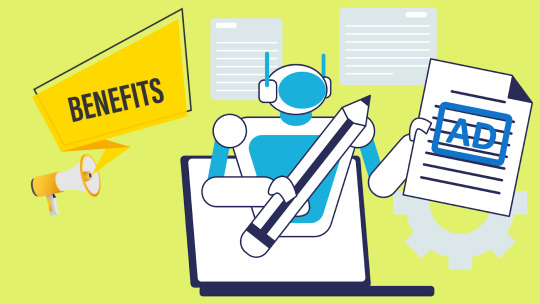
1. Speed and Efficiency
One of the main advantages of AI-driven copywriting is the speed at which it generates content. While human writers may take hours or even days to draft compelling ad copy, AI can produce multiple variations within seconds. This efficiency allows marketers to test different messaging strategies quickly and refine them based on performance metrics.
2. Data-Driven Optimization
AI does not just generate content—it learns from data. By analyzing historical ad performance, AI tools can predict which headlines, call-to-action phrases, and messaging styles are more likely to convert. This data-driven approach eliminates guesswork and improves the chances of running successful ad campaigns.
3. Cost-Effective Solution
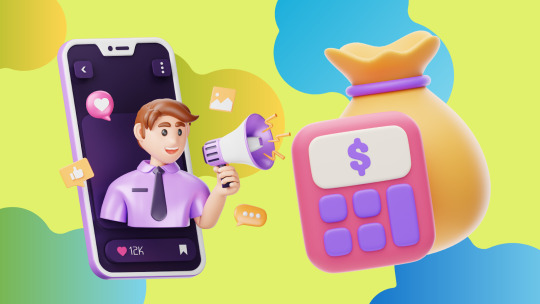
Hiring a skilled copywriter or agency can be expensive, especially for small businesses with limited budgets. AI-powered tools provide an affordable alternative without compromising quality. Many AI platforms offer subscription-based models, making them a cost-effective investment for businesses of all sizes.
4. Personalization at Scale
Consumers today expect personalized experiences, and AI makes this possible by tailoring ad copy to different audience segments. AI-driven systems can create multiple versions of an ad, each optimized for specific demographics, interests, and behaviors. This level of customization leads to higher engagement rates and improved customer satisfaction.
The Role of Generative AI in Ad Copywriting
At the heart of AI-powered copywriting lies Generative AI, a technology designed to produce human-like text based on prompts and data inputs. Unlike traditional automation tools, Generative AI uses deep learning models to understand context, tone, and sentiment, making the copy feel natural and engaging.
Generative AI is trained on vast datasets of marketing materials, enabling it to mimic various brand voices and adapt to different industries. This means that whether you're in e-commerce, SaaS, or real estate, AI can generate copy that aligns with your brand identity and target audience.
Challenges and Ethical Considerations
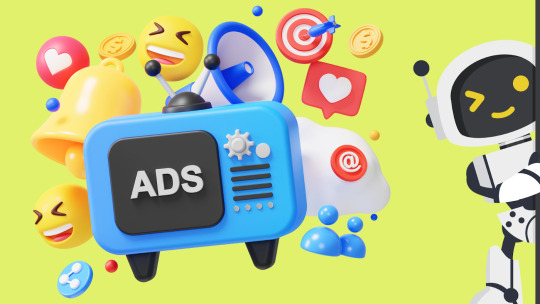
Despite its numerous benefits, AI-generated copy is not without its challenges. One main concern is the potential for generic or repetitive content. AI is strong, but it still lacks human writers' genuine emotional intelligence and inventiveness. Therefore, businesses should use AI as a supportive tool rather than a complete replacement for human creativity.
Ethical issues also need to be taken into account. When using AI-generated material, transparency is crucial. Marketing communications should be truthful and in line with the company's principles. Additionally, human review of AI-generated material is always necessary to guarantee quality and avoid mistakes.
The Future of AI in Advertising
The future of AI in advertising looks promising, with continuous advancements in machine learning and natural language processing. AI tools will provide even more complex and context-aware copywriting capabilities as they advance in sophistication. In addition to creating copy, AI should be able to forecast new trends, create highly customized communications, and easily interface with other marketing automation systems.
Also, watch this Video - How To Create Competitors Inspired That Sell with AdsGPT!
youtube
Wrapping Up
Ad copy AI is reshaping the way businesses create persuasive advertisements. By leveraging AI-powered tools, marketers can enhance efficiency, optimize content, and personalize their messaging like never before. AI will continue to transform digital marketing and advertising as long as companies use it responsibly and in tandem with human innovation.
0 notes
Text
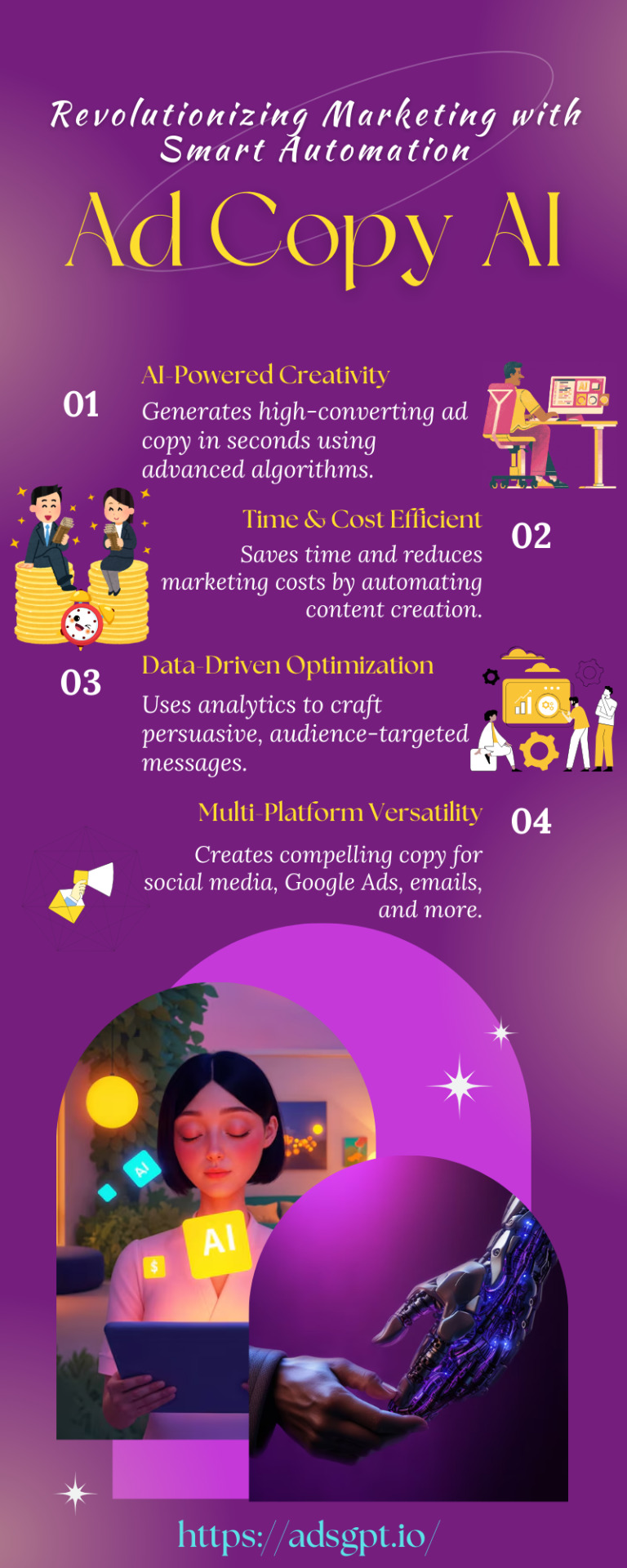
Ad Copy AI: Revolutionizing Marketing with Smart Automation
In this Infographics, you will get to know about the ad copy AI.
1 note
·
View note
Text
Harnessing The Power Of Emotion With Advertisement Content Strategies

In today's competitive digital space, creating effective advertisement content is complex. With an overwhelming influx of ads across various platforms, making a difference requires more than just catchy slogans or flashy visuals. A lasting impact is made on consumers when there is emotional connection. Emotion-driven advertising taps into the psyche of the audience, fostering a much deeper sense of loyalty and engagement. By knowing how emotions affect the purchasing decision, brands can create more compelling campaigns that will appeal to their target market.
Understanding Emotional Advertising
The basis of emotional advertising is the concept that emotions drive consumer behavior. Whether it's joy, fear, nostalgia, or empathy, an emotional response has the power to influence how people perceive a brand or product. When creating advertisement content, tapping into these emotions can significantly impact consumer perceptions and decisions. Studies have consistently shown that emotionally engaged consumers are more likely to make purchasing decisions and even become brand advocates.
Since the human brain processes emotional content faster than rational content, ads that elicit an emotional response are more memorable. Emotional responses also improve recall; that is, when a consumer feels strongly about a brand or product, they are more likely to remember the ad and respond accordingly. This emotional connection creates a sense of urgency, driving consumers to take immediate action, whether it's clicking on a link, sharing content, or making a purchase.
Empathy & Storytelling In Ads
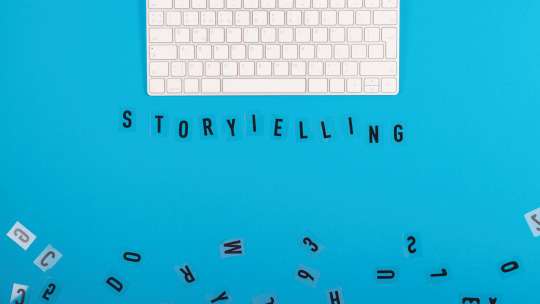
Storytelling is one of the most effective ways to leverage emotion in advertisement content. A well-crafted narrative will draw people in, making them feel personally connected to the characters and situations portrayed. Whether it's a heartwarming story about family, a journey of personal triumph, or
Brands such as Coca-Cola and Nike have learned to tell stories that connect to basic human emotions like happiness, determination, and unity. For instance, Coca-Cola's "Open Happiness" campaign was extremely simple yet powerful in using an image of people sharing moments together, thus making the brand synonymous with positive experiences.
The Power Of Visuals & Music
Visuals and music used in advertisements can also be amplified for emotional responses. Music is a strong trigger that sets the tone for an advertisement very fast. For example, if there is upbeat music, one may get excited. Melodic, slow tunes can be related to sadness or nostalgia. Facial expressions and body language of individuals on screen can also tell more than words can say.
For instance, a commercial that depicts a family enjoying a holiday with soft lighting and warm tones can bring out feelings of comfort and happiness. In the same way, an advertisement featuring a hero overcoming adversity with a triumphant soundtrack can evoke motivation and empowerment.
Emotional Triggers Within Advertisement Content

Different emotions serve different purposes in advertising. The best emotional trigger for a campaign will help the ad reach a more enhanced effectiveness. Here are some of the most common emotional triggers and how they are used in advertising:
#1 Fear: Often used in public service announcements, safety campaigns, or insurance ads, fear-based content urges consumers to take action to avoid negative consequences. For example, anti-smoking ads may show the health risks of smoking, prompting individuals to quit.
#2 Happiness: Ads that make the audience laugh or smile leave an indelible mark on viewers. Companies selling leisure-related, entertainment-related, or social gathering-related products use happiness to emphasize the joy brought about by their products.
#3 Nostalgia: Many brands are using nostalgia as a means to reconnect with their customers. Longing for the past can be quite an emotional bond, especially among older audiences who remind them of simpler times. Any advertisement that contains retro elements or brings back a moment of yesteryear pop culture always creates nostalgia.
#4 Empathy: Empathetic advertising resonates with people at a personal level and has an empathetic attitude and compassion. Charitable causes or causes to create awareness on social issues often make use of empathy for taking action either in terms of donation or support.
Long-Term Emotional Connections
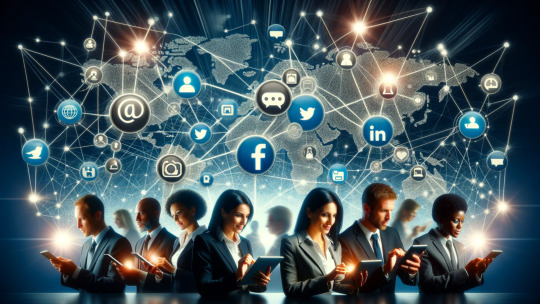
While this creates short-term sales, the actual aim is to establish an emotional relationship with consumers that will last longer. Brand consistency comes in at this point. It means that a brand consistently inspires emotions in a positive manner such as humor, empathy, or trustworthiness that helps create great brand loyalty.
Consumers who have an emotional connection with a brand are likely to return, recommend the product to others, and stay loyal over time. A strong emotional connection transcends rational decision-making, making it harder for competitors to steal market share.
You can also watch: Effortless & Smart Ad Creation Made Simple with AdsGPT!
youtube
Conclusion
Advertisement content is no longer a luxury but a necessity where harnessing the power of emotion. Emotionally centered advertisements can form a more significant connection, help consumers build a loyalty relationship with a brand, and contribute to the generation of sales. Using story, determining the emotional hooks, and creating consistency across the brand, businesses can ensure that advertisement content is not only product sales-oriented but also meaningful and impactful to their target audience. In a world drowning in advertising, it will be those brands that create emotions in people, rather than mere thoughts.
0 notes
Text
":')))))))) you realise that gen AI is available to everyone though right??? Queer creators can use it just as much as anyone else??? I just don't understand this post... It really feels like a cheap way to get on the 'AI Bad's bandwagon, and coming from such a thoughtful and insightful creator that's incredibly disappointing... It's okay to not comment on subjects you're not an expert in y'know...?"
Y'all know the drill, I am replying to this publicly but that is not an invitation to send any negative messages to the person I am replying to.
Anyways, let me start by saying that the original context of the post you're replying to is discussing an event where a queer org used generative AI to steal an interview with Keri Hulme. So let's start there. To be clear I don't even know if the original interviewer was queer so let's put the identities of stealer and stolen from to the side. I want to explain the harm done in this example specifically and I hope this is illustrative of what harm generative AI can (and does) do.
The original place I saw generative AI was a queer org that explicitly says they are using generative AI "for good", and as a way to bring more queer history to light. So let's take them at their word, and assume they are not out to cause harm. This is the best example of generative AI that I can imagine, so I hope that makes it clear that I am not coming at this issue from bad faith in any way.
Here is the harm they are causing:
Decontextualizing and rephrasing an interview: I am not going to pretend that I am an expert in academic best practices, but I do believe one thing, if a person is speaking on their own identity and lived experience, it is always much better to directly quote than it is to rephrase. As I read this source, I initially didn't know that it was AI, and I was already upset. An interview that is widely available on the internet with no pay wall, was poorly sourced and made more vague than it was in the initial text. By creating one degree of seperation between the original words of A WRITER (whose literal job was largely based in choosing the right words to describe experiences they had) harm is already done. It makes vague what was once clear, and removes Keri Hulme's voice from her own narrative.
The original interviewer is not paid, or given proper recognition: I get it, sometimes just copy pasting an interview doesn't feel transformative enough, but something that one would learn if they worked in the queer history field and weren't a literal robot rehashing what has already been said, is that not everything needs to be transformed. In those cases, we give credit to the person who said the original words (in this case Keri Hulme), and the interviewer who facillitated the conversation (in this case Shelley Bridgeman). This case (again a best case scenario), takes the attention and byline away from the original interviewer and gives it to an AI.
The original publisher of this story is deinsentivised from paying interviewers in the future: The original publisher of this interview has ads on their website. As a person who also has ads on their website, taking an article like this and rephrasing it for no good reason (the orginal word count was not prohibitive and the rephrasing did not make it more readable), takes money from the publisher. It's pennies, but it's also removing numbers could have been used to justify further interviews with asexual people and archiving of asexual stories. The org that stole from this publication does not interview people themselves so the money and numbers that could have gone to continue to preserve asexual stories goes to stealing them instead.
These are just the active harms that I saw in this specific case. As you said, I am not an expert in generative AI, and will not be speaking as if I am. But I will say that asking me not to speak out on active harm that is being caused in queer history spaces, is disrespectful to my many years in this field.
To illustrate this even clearer: if you were a patron, you would know I recently took down an old article. I have been rereading and editing our backlist of articles, and I found one that no longer fit my standards of sourcing. My standards had recently raised due to a video made by HBomberguy about someone in the queer history space who was stealing from other creators. I watched this video not as a work project, but because I watch most of HBomberguys videos, and this one made me think more critically about sourcing. An AI can't do that. All an AI has is what has been inputted, and it is right now impossible to input every available peice of information about ethics into an AI and get a coherent ethical basis on which it will function.
It is a distinctly human trait to absorb information and change in that way. AI can rephrase information that already exists, steal it, recontextualize it even, but it cannot create something altogether new.
Do I believe that there one day might be an ethical use for Generative AI? Maybe. Do I believe that coming into a queer history space, stealing the words of a Maori asexual author, rephrasing them, and giving the original interviewer and publication no form of compensation for their work, is accomplishing that? No.
On a more personal note: I am coming at this issue with a bias. As a queer history creator, I do not want AI in my space, because it is literally damaging to my financial prospects. It has been like pulling teeth to try and get patrons in the current state of the global economy. I don't blame anyone from that, but I feel very disrespected that I am being asked to compete with a machine now. Not only that, but I am being asked to shut up and be fine with it? No, absolutely not. I cannot and will not stay quiet as space that I have fought tooth and nail to create in mainstream discussions is taken and given to AI.
AI was not supporting me when I was sent gore to try and scare me off of discussing queer history. A person did that. AI was not there to tell me I had written too many sad stories, and I needed some happy endings to remind myself of the good in the world. A person did that. AI was not there when I was being harrassed for supporting and including asexual stories on my website. A person did that.
And after all that, I am being asked to lie down and take it when my ability to pay the people who supported me in those ways, is being threatened. Nope. Not going to happen.
An AI doesn't have to make rent. An AI doesn't understand what it feels like to have to stop holding their wife's hand in public. An AI didn't get calls from people needing comfort in reaction to the election. Pay me for my work, and get this AI nonsense out of my face.
3K notes
·
View notes
Text
GUILTY AS SIN || MASTERLIST
General Marcus Acacius x fem! virgin! reader



SERIES SUMMARY: Being the daughter of a Senator of Rome has it's pros and cons, you lived comfortably while constantly being reminded of your insubordinate position in society. However, upon meeting General Acacius, your life changes as you begin to grow fond of him. The question is, will he reciprocate your feelings, or cast you out to suffer your impending doom of unwanted courtship?
SERIES WARNINGS: MDNI/18+. NSFW. Eventual smut. Girthy age gap [Acacius is canon age @ 50/reader is around very early 20s]. Explicit Language. Formal dialogue. Mentions of patriarchal norms & customs. Sexism & Misogyny. Comments & threats of prostitution. Violence. Political corruption & instability. Talks of virginity & sexual experience. Yearning & longing. Mutual pining. Budding romance/relationship. Unintentional/intentional courting. Terms of endearment (dove, little dove). Reader has hair & wears dresses & jewelry. Reader can read and write, educated due to privileged status. Marcus Acacius is a romantic & respects women. Acacius has his own family ring (different from the movie). Historical inaccuracies. Each chapter has additional warnings and context; heed the tags.
➣ Note: Reader's Father’s Name - Julianus Novius Lurio. Handmaiden name - Viria.
A/N: Had this idea saved for months when we first got pictures of Pedro Pascal playing General Marcus Acacius, and I am happy to finally bring this story to life! Just a little mini series to talk about falling for the General, gotta love it. Reblogs, comments, and likes are always greatly appreciated!
NAVIGATION | MASTERLIST | AO3

▹ I. - INTACTUM (11.1k)
▹ II. - VETITI FRUCTUS (11.5k)
▹ III. - TBA
↳ more to be added…

©️ ovaryacted 2024. Please don’t repost, copy, translate, or feed into any AI. Support your fellow creators by reblogging, commenting, and liking!
Dividers by @/saradika-graphics
#marcus acacius x reader#marcus acacius x you#marcus acacius x female reader#marcus acacius smut#marcus acacius#general marcus acacius#marcus acacius x f!reader#gladiator ii#gladiator 2 fic#gladiator 2 fanfiction#gladiator 2 fanfic#pedro pascal#pedro pascal characters#ovaryacted fics#ovaryacted fics: guilty as sin#⋆♱ nic works ♱⋆
463 notes
·
View notes
Text
Harpercollins wants authors to sign away AI training rights

If you'd like an essay-formatted version of this post to read or share, here's a link to it on pluralistic.net, my surveillance-free, ad-free, tracker-free blog:
https://pluralistic.net/2024/11/18/rights-without-power/#careful-what-you-wish-for

Rights don't give you power. People with power can claim rights. Giving a "right" to someone powerless just transfers it to someone more powerful than them. Nowhere is this more visible than in copyright fights, where creative workers are given new rights that are immediately hoovered up by their bosses.
It's not clear whether copyright gives anyone the right to control whether their work is used to train an AI model. It's very common for people (including high ranking officials in entertainment companies, and practicing lawyers who don't practice IP law) to overestimate their understanding of copyright in general, and their knowledge of fair use in particular.
Here's a hint: any time someone says "X can never be fair use," they are wrong and don't know what they're talking about (same goes for "X is always fair use"). Likewise, anyone who says, "Fair use is assessed solely by considering the 'four factors.'" That is your iron-clad sign that the speaker does not understand fair use:
https://pluralistic.net/2024/06/27/nuke-first/#ask-questions-never
But let's say for the sake of argument that training a model on someone's work is a copyright violation, and so training is a licensable activity, and AI companies must get permission from rightsholders before they use their copyrighted works to train a model.
Even if that's not how copyright works today, it's how things could work. No one came down off a mountain with two stone tablets bearing the text of 17 USC chiseled in very, very tiny writing. We totally overhauled copyright in 1976, and again in 1998. There've been several smaller alterations since.
We could easily write a new law that requires licensing for AI training, and it's not hard to imagine that happening, given the current confluence of interests among creative workers (who are worried about AI pitchmen's proclaimed intention to destroy their livelihoods) and entertainment companies (who are suing many AI companies).
Creative workers are an essential element of that coalition. Without those workers as moral standard-bearers, it's hard to imagine the cause getting much traction. No one seriously believes that entertainment execs like Warner CEO David Zaslav actually cares about creative works – this is a guy who happily deletes every copy of an unreleased major film that had superb early notices because it would be worth infinitesimally more as a tax-break than as a work of art:
https://collider.com/coyote-vs-acme-david-zaslav-never-seen/
The activists in this coalition commonly call it "anti AI." But is it? Does David Zaslav – or any of the entertainment execs who are suing AI companies – want to prevent gen AI models from being used in the production of their products? No way – these guys love AI. Zaslav and his fellow movie execs held out against screenwriters demanding control over AI in the writers' room for 148 days, and locked out their actors for another 118 days over the use of AI to replace actors. Studio execs forfeited at least $5 billion in a bid to insist on their right to use AI against workers:
https://sites.lsa.umich.edu/mje/2023/12/06/a-deep-dive-into-the-economic-ripples-of-the-hollywood-strike/
Entertainment businesses love the idea of replacing their workers with AI. Now, that doesn't mean that AI can replace workers: just because your boss can be sold an AI to do your job, it doesn't mean that the AI he buys can actually do your job:
https://pluralistic.net/2024/07/25/accountability-sinks/#work-harder-not-smarter
So if we get the right to refuse to allow our work to be used to train a model, the "anti AI" coalition will fracture. Workers will (broadly) want to exercise that right to prevent AI models from being trained at all, while our bosses will want to exercise that right to be sure that they're paid for AI training, and that they can steer production of the resulting model to maximize the number of workers than can fire after it's done.
Hypothetically, creative workers could simply say to our bosses, "We will not sell you this right to authorize or refuse AI training that Congress just gave us." But our bosses will then say, "Fine, you're fired. We won't hire you for this movie, or record your album, or publish your book."
Given that there are only five major publishers, four major studios, three major labels, two ad-tech companies and one company that controls the whole ebook and audiobook market, a refusal to deal on the part of a small handful of firms effectively dooms you to obscurity.
As Rebecca Giblin and I write in our 2022 book Chokepoint Capitalism, giving more rights to a creative worker who has no bargaining power is like giving your bullied schoolkid more lunch money. No matter how much lunch money you give that kid, the bullies will take it and your kid will remain hungry. To get your kid lunch, you have to clear the bullies away from the gate. You need to make a structural change:
https://chokepointcapitalism.com/
Or, put another way: people with power can claim rights. But giving powerless people more rights doesn't make them powerful – it just transfers those rights to the people they bargain against.
Or, put a third way: "just because you're on their side, it doesn't follow that they're on your side" (h/t Teresa Nielsen Hayden):
https://pluralistic.net/2024/10/19/gander-sauce/#just-because-youre-on-their-side-it-doesnt-mean-theyre-on-your-side
Last month, Penguin Random House, the largest publisher in the history of human civilization, started including a copyright notice in its books advising all comers that they would not permit AI training with the material between the covers:
https://pluralistic.net/2024/10/19/gander-sauce/#just-because-youre-on-their-side-it-doesnt-mean-theyre-on-your-side
At the time, people who don't like AI were very excited about this, even though it was – at the utmost – a purely theatrical gesture. After all, if AI training isn't fair use, then you don't need a notice to turn it into a copyright infringement. If AI training is fair use, it remains fair use even if you add some text to the copyright notice.
But far more important was the fact that the less that Penguin Random House pays its authors, the more it can pay its shareholders and executives. PRH didn't say it wouldn't sell the right to train a model to an AI company – they only said that an AI company that wanted to train a model on its books would have to pay PRH first. In other words, just because you're on their side, it doesn't follow that they're on your side.
When I wrote about PRH and its AI warning, I mentioned that I had personally seen one of the big five publishers hold up a book because a creator demanded a clause in their contract saying their work wouldn't be used to train an AI.
There's a good reason you'd want this in your contract; the standard contracting language contains bizarrely overreaching language seeking "rights in all media now know and yet to be devised throughout the universe":
https://pluralistic.net/2022/06/19/reasonable-agreement/
But the publisher flat-out refused, and the creator fought and fought, and in the end, it became clear that this was a take-it-or-leave-it situation: the publisher would not include a "no AI training" clause in the contract.
One of the big five publishers is Rupert Murdoch's Harpercollins. Murdoch is famously of the opinion that any kind of indexing or archiving of the work he publishes must require a license. He even demanded to be paid to have his newspapers indexed by search engines:
https://www.inquisitr.com/46786/epic-win-news-corp-likely-to-remove-content-from-google
No surprise, then, that Murdoch sued an AI company over training on Newscorp content:
https://www.theguardian.com/technology/2024/oct/25/unjust-threat-murdoch-and-artists-align-in-fight-over-ai-content-scraping
But Rupert Murdoch doesn't oppose the material he publishes from being used in AI training, nor is he opposed to the creation and use of models. Murdoch's Harpercollins is now pressuring its authors to sign away their rights to have their works used to train an AI model:
https://bsky.app/profile/kibblesmith.com/post/3laz4ryav3k2w
The deal is not negotiable, and the email demanding that authors opt into it warns that AI might make writers obsolete (remember, even if AI can't do your job, an AI salesman can convince Rupert Murdoch – who is insatiably horny for not paying writers – that an AI is capable of doing your job):
https://www.avclub.com/harpercollins-selling-books-to-ai-language-training
And it's not hard to see why an AI company might want this; after all, if they can lock in an exclusive deal to train a model on Harpercollins' back catalog, their products will exclusively enjoy whatever advantage is to be had in that corpus.
In just a month, we've gone from "publishers won't promise not to train a model on your work" to "publishers are letting an AI company train a model on your work, but will pay you a nonnegotiable pittance for your work." The next step is likely to be, "publishers require you to sign away the right to train a model on your work."
The right to decide who can train a model on your work does you no good unless it comes with the power to exercise that right.
Rather than campaigning for the right to decide who can train a model on our work, we should be campaigning for the power to decide what terms we contract under. The Writers Guild spent 148 days on the picket line, a remarkable show of solidarity.
But the Guild's real achievement was in securing the right to unionize at all – to create a sectoral bargaining unit that could represent all the writers, writing for all the studios. The achievements of our labor forebears, in the teeth of ruthless armed resistance, resulted in the legalization and formalization of unions. Never forget that the unions that exist today were criminal enterprises once upon a time, and the only reason they exist is because people risked prison, violence and murder to organize when doing so was a crime:
https://pluralistic.net/2024/11/11/rip-jane-mcalevey/#organize
The fights were worth fighting. The screenwriters comprehensively won the right to control AI in the writers' room, because they had power:
https://pluralistic.net/2023/10/01/how-the-writers-guild-sunk-ais-ship/

Image: Cryteria (modified) https://commons.wikimedia.org/wiki/File:HAL9000.svg
CC BY 3.0 https://creativecommons.org/licenses/by/3.0/deed.en
--
Eva Rinaldi (modified) https://commons.wikimedia.org/wiki/File:Rupert_Murdoch_-_Flickr_-_Eva_Rinaldi_Celebrity_and_Live_Music_Photographer.jpg
CC BY-SA 2.0 https://creativecommons.org/licenses/by-sa/2.0/deed.en
#pluralistic#harpercollins#newscorp#rupert murdoch#chokepoint capitalism#publishing#books#big publishing#ai#copyright#copyfight
442 notes
·
View notes
Note
Hello airi!! I hope you're having a wonderful day, or at least, had one 😚💕
i saw that your request status is open, and I hope it's okay for me to drop one again outside of the event :P
Mydei (ratio has had enough attention from me) and a reader who likes to leave him flowers whenever he trains. The reader doesn't really show themselves when they do it due to being shy and the fact that mydei is an intimidating person in general ╮( ̄ω ̄;)╭
(surprise surprise, he knows it's us all this time and at some point confronts us about it. But ofc everything ends well askdkso ^^;) the rest is up to you, airi! I'll let your creative mind take the reins from here on out. Hope this isn't too much to ask! Have a good day (˶ ˘ ³˘)ˆᵕ ˆ˶)
flower shower- mydei x (implied shy!) reader
synopsis: your shy nature prevents you from leaving flowers you want to show your beloved. but little did you know he knows it’s just you being sweet. :)
warnings: none, it’s all fluff! possibly ooc Mydei but i have never written him before </3
word count: 341
author’s note: Lexi, you sent such a cute and sweet ask! thank you for sending something in (smh it’s not Ratio /lh) and feel free to drop more requests in! hope you enjoy! <3
taglist: @axolotsofluv, @sqgeism, @vyyper, @your-sleeparalysisdem0n, @cmiru, @unriding, @sheyfu, + @m1ckeyb3rry! lmk if you’d like to be added to the taglist!
your beloved boyfriend was very intimidating. to his deep and almost threatening voice to his sheer size and stature, he was a force to be reckoned with… literally. so when Agalea told him about mysterious flowers showing up around her seamstress shop, Mydei didn’t think anything of it… until he saw a flower crown on a bench near his typical training spot. strange. the only people who knew about the spot were the Chrysos Heirs and you. and you weren’t known for flowers, so he thought it was a friend playing tricks on him.
to say your plan went well was… a statement, for sure! Mydei had noticed the flower crown you left on the bench, but he didn’t see you place it. he probably thinks it’s weird how flowers are after him, you thought. but hey, if making a bouquet of flowers or making a flower crown helps you deal with stress, then so be it! you’re just doing a nice gesture, nothing more, nothing less, right?
“No, Aglaea, you don’t know who it is? Really?” Mydei asked the Goldweaver.
“Mydeimos, i think the answer you search for is right under your nose,” Aglaea replied. Mydei turned on his heel before searching for you.
Home was great. you could relax and chill, and do whatever to your heart’s content. you’re putting together a bouquet when suddenly there’s a rap at your door. you forget to put the bouquet in your hands down before getting up and opening the door. it’s Mydei.
“I found my secret admirer,” Mydei smirks as you both look down at the bouquet in your hands. your face flushes a little bit.
“I can explain-“ you start, but Mydei cuts you off.
“don’t bother, it’s quite endearing. there may not be a word in the Kremnoan language for love, but it would be nice if you could show me how to take care of the flowers you’ve given me throughout the years…”
And that’s how Mydei spent the night at your home for the first time ever.
©2025 strawbairicake. do not repost, copy, translate, modify, or use for AI.
166 notes
·
View notes
Text
whether the internet becomes an intolerable surveillance state, ubiquitous subscription model, or unusably ad- or AI-ridden shithole, I think we need to remember
how to do things offline
either on your personal hard drive (just because it’s an app doesn’t mean the information is stored in your device) or on paper. I’m not saying the collapse of the internet is imminent, and I’m not suggesting we do everything completely without technology, or even stop using it until we have to. (to be clear, I also don’t think the internet will just blink out of existence, suddenly stop being a thing at all; rather I think it might continue to lose its usefulness to the point where it’s impossible to get anything done. anyway) but some people may have forgotten how we got by before the internet (I almost have!), and the younger generation might not have experienced it at all.
I figure most people probably use the internet mainly for communication with friends and family, entertainment and creation (eg. writing), and looking up how to do things, so here’s how to do those things offline:
First and most importantly, download everything important to you onto at least one hard drive and at least one flashdrive! files can get corrupted and hardware can get damaged or lost, but as long as you keep backup copies, you have much-closer-to-guaranteed access versus hoping a business doesn’t decide to paywall, purge, or otherwise revoke your access. I would recommend getting irreplaceable photos printed as well
download and/or print/write down:
anything important to you - photos/videos, journals, certificates, college transcripts
contact info - phone numbers and/or addresses of friends/family (know how to contact them if you can’t use your favourite messaging app), doctors (open hours would be good too), veterinarians if you have pets, and work
how-to’s - recipes (one, two), emergency preparedness (what do I do if… eg. I smell gas)
other things you might google: cleaning chemicals to NOT mix, what laundry tag symbols mean, people food dogs and cats can and can’t eat, plant toxicity to pets
and know offline ways to find things out - local radio station, newspaper, a nearby highway rest area might have a region map, public libraries usually have a bunch of resources
also, those of you who get periods should strongly consider not using period tracking apps! here’s how to track your period manually
free printable period tracker templates (no printer? public libraries usually charge a few cents per page, or you can recreate it by hand)
moving on to entertainment, you can still get most media for free! it’s completely legal to download your favourite movies to your own personal hard drive, you just can’t sell or distribute copies (not legal advice)
movies: wcostream.tv (right click the player) - the url changes every once in a while but usually redirects; I recently noticed that it’s hiding a lot of movies behind “premium,” so it may or may not work anymore | download youtube videos
music: how to get music without streaming it | legal free downloads
games: steamunlocked.net - doesn’t have every game and can be slow to update, but very reliable
books: free online libraries | legal free downloads
otherwise passing time:
active outdoor games
for road trips (social verbal games)
for when power’s out
for sheltering in place (not all offline, but good ideas)
board games (often found at thrift stores)
ad-free customisable games collection (mobile)
read, write, draw, or whatever your craft is, sing, dance, clean, reorganise, take a bath
go outside - excuses include napping (if safe), eating, reading, finding cool plants/animals/rocks, playing with the dog
places to go include:
zoos and museums can be surprisingly cheap
parks and nature preserves
library, mall, or game shop
and a few miscellaneous things for good measure:
time budgeting | household management
how to use a planner | I’ve had success with visually blocked-out schedules like these
please add on if you have any other offline alternatives to common uses of the internet!
768 notes
·
View notes
Text
Your teammate says he finished writing your college presentation. He sends you an AI generated text. The girls next to you at the library are talking about the deepfake pictures of that one celebrity at the MET gala. Your colleague invites you to a revision session, and tells you about how he feeds his notes to ChatGPT to get a resume. You say that's bad. He says that's your opinion. The models on social media aren't even real people anymore. You have to make sure the illustrated cards you buy online were made by actual artists. Your favourite musician published an AI starter pack. Your classmates sigh and give you a condescending smile when you say generative AI ruins everything. People in the comments of your favourite games are talking about how someone needs to make a Character.AI chat for the characters. People in your degree ask the answers of your exams to ChatGPT. You start to read a story and realise nothing makes sense, it wasn't written by a human being. There's a "this was written with AI" tag on AO3. The authors of your favourite fanfics have to lock their writing away to avoid their words getting stolen. Someone tells you about this amazing book. They haven't actually read it, but they asked Aria to resume it for them, so it's almost the same thing. People reading your one shot were mad that you wouldn't write a part 2 and copied your text in ChatGPT to get a second chapter. Someone on Tumblr makes a post about how much easier it is to ask AI to write an email for them because they're apparently "too autistic" to use their own words. Gemini generates wrong and dangerous answers at the top of your Google research page. They're doubling animation movies using voices stolen by AI. It's like there's nothing organic in this world anymore. Sometimes you think maybe nothing is real. The love confession you received yesterday wasn't actually written by your crush. If you're alone on a Saturday night and you feel lonely, you can talk to this AI chatbot. It terrifies you how easily people are willing to lay their critical thinking on the ground and slip into a state of ignorance. Creativity is too much work, having ideas by yourself became overrated these days. When illustrators fear for their future, people roll their eyes and tell them it's not that bad, they're just overreacting. No one wants to hear this ecologist crap about the tons of water consumed by ChatGPT, it's not that important anyway. There's AI sprinkled in the soundtrack of that movie and in the special effects and into the script. Giving a prompt to Grok is basically the same thing as drawing this Renaissance painting yourself. McDonald's is making ads in Ghibli style. The meaning of the words and images all around you slip away as they're replaced with robotic equivalents. No one is thinking anymore, they're just doing and saying what they were told. One day, there might not be any human connection anymore. Without the beauty of art, we have nothing to communicate, nothing to leave to the world, and our lives become dull. Why would you befriend anyone when you can get a few praises and likes on Instagram by telling a bot to copy Van Gogh's style on a picture of your cat? It's okay, you're never really alone when you can call your comfort character on c.AI anytime. You don't even know how to solve basic everyday problems, ChatGPT does it for you. One day it'll tell you to jump on the rails at the subway station, and maybe you'll do. You sacrificed your job, your friends, your partner, your family, and your planet. After all this, it has to be worth it. If Gemini tells you to drink bleach tonight when you search a receipt for dinner, then surely, it must be right.
#fuck ai#fuck generative ai#fuck genai#writeblr#writers and poets#writers on tumblr#writerscommunity#writing#original writing#creative writing#echoes of atlantis
157 notes
·
View notes
Text
how anyone is still using facebook on purpose is beyond me. i accidentally opened it from a link (apparently i never deleted it after all) and the first three posts were:
some lady who took a class with me 9 years ago is doing fascism now
an ad for meta ai that automatically popped open and spontaneously generated an uncanny valley image of lizard people with party hats and the deadest eyes you can imagine sitting around some kind of outback steakhouse booth
“this is my final post before i take my last breath” from MY AUNT FROM REAL LIFE that understandably scared the shit out of me until i expanded the post and saw it was some kind of fucked up facebook chain letter??? “COPY don’t SHARE this entire post word for word if you’ve ever had anyone you love die of cancer. Most people won’t read this all the way so to prove you did comment ‘Done’ so I know who really cares.”
???? HOW is anyone still on there voluntarily. i don’t just need to take a shower after that, i need to peel my skin off and run it through the pots and pans cycle on the dishwasher.
152 notes
·
View notes
Text
Ad Maker A Beginner's Guide To Creating Effective Ads
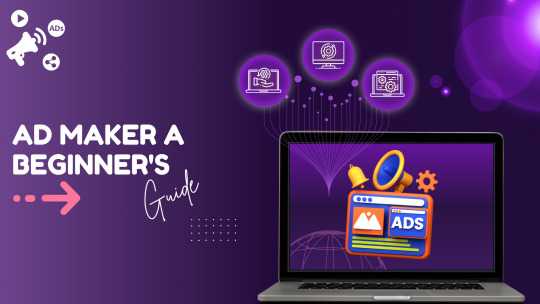
In today’s fast-paced digital world, the ability to create eye-catching and effective ads is a valuable skill for businesses, entrepreneurs, and marketers. Whether you're promoting a product, service, or brand, a well-crafted advertisement can make all the difference in attracting attention and driving conversions. If you're new to the world of advertising, you might feel overwhelmed by the number of tools and strategies available. That’s where an ad maker comes in. This tool allows you to design ads that not only look professional but also engage your target audience. In this guide, we’ll walk you through the essential steps of creating impactful ads, from understanding your audience to optimizing your designs. By the end of this guide, you'll have the knowledge and tools to start crafting ads that stand out and deliver results.
#1 Knowing Your Target Audience
The very base of any successful advertisement is knowing who your target audience is. Before you even start making the ad, ask yourself: Who am I trying to reach? What are their pain points? What motivates them to take action? Your ads should be tailored to resonate with the specific needs and desires of your audience. This could be through language, imagery, or the benefits your product or service offers.
For example, an ad for a fitness product might focus on health-conscious individuals looking to improve their lifestyle. The language might emphasize energy, vitality, and results, appealing to the motivations of those looking to make a change in their life. Similarly, if you're marketing a luxury item, your ad would need to reflect exclusivity and prestige, speaking to the desires of affluent customers.
#2 Crafting A Compelling Message
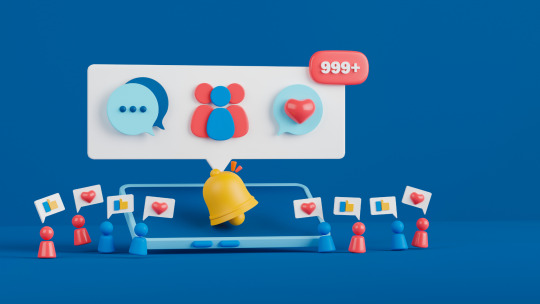
Once you understand your audience, the next step is to develop a clear, compelling message. Your ad should communicate the value of your product or service in a way that's concise, engaging, and relevant to the audience. Focus on the benefits, not just the features. Benefits answer the question "What's in it for me?" and they create a sense of urgency or desire.
For instance, rather than enumerating the features of a new smartphone, tell them how the phone makes their life easier, faster, or more enjoyable. Explain how this solves a problem or augments your daily life, and a great clear message grabs the attention of a customer's eye, leading him further to take a purchase decision, or learn more about it.
#3 Attention-Grabbing Design
In advertising, first impressions are everything. The design of your ad will play a big role in how well it grabs attention and gets your message across. The visual aspects of an ad should be attractive, easy to understand, and consistent with the brand as a whole.
First of all, use bold, clear headlines that are readable at arm's length. Use strong colors, fonts, and high-quality images or graphics to make your ad stand out. Simple and clear is key; don't overload your design with too much text or too many elements. Instead, focus on one very strong visual element that underpins the message. Remember, the information should be communicated quickly and effectively in a crowded space.
#4 Call To Action (CTA)
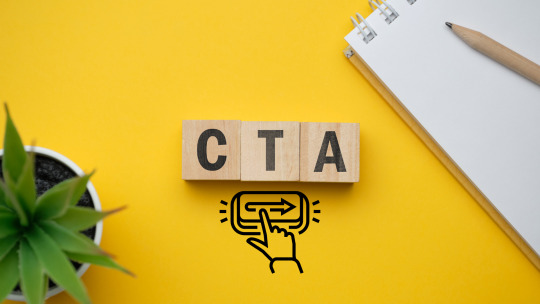
There should be a call to action in an effective ad. A call to action is a directive that tells your audience what you want them to do next. Whether you want them to "Buy Now," "Learn More," "Sign Up," or "Get Started," your call to action has to be easy to find and simple to follow. Your call to action should be direct and persuasive and should urge the viewer to take the action right away.
Be specific in your CTA. For example, instead of just saying "Shop Now," you could say "Shop Now for 20% Off Your First Order." That not only tells the viewer what to do but also gives them an incentive to act.
#5 Testing And Optimization
One of the most crucial steps in creating effective ads is testing and optimization. Even the best ad campaigns need fine-tuning to maximize their performance. Run A/B tests by creating different versions of your ad and comparing their results. Test different headlines, images, and CTAs to see which ones resonate most with your audience.
Monitor key performance indicators (KPIs) such as click-through rates, conversion rates, and engagement metrics. Use this data to refine your ad designs, messaging, and targeting. Over time, you'll become better at understanding what works and how to make adjustments to improve results.
#6 Understanding Ad Platforms
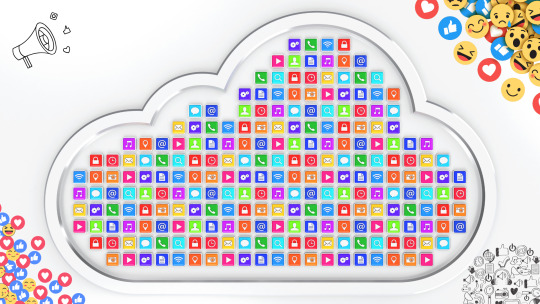
Currently, there are many platforms available that one can use to create and run their ads, such as social media, search engines, and websites. Each of these platforms will have its own best practices as well as audience characteristics. For example, Facebook ads tend to do great for visual products, but Google Ads may be much more effective for search-driven queries.
Familiarize yourself with the platforms you are advertising on as they all have their own sets of creative guidelines and technical specifications. For example, some platforms might require specific size and formats for images, videos, or copy. This knowledge will help you to ensure that your ads look at their best and are well-optimized for performance.
#7 Budgeting For Ads
Finally, your advertising budget is essential to a successful campaign. Determine how much you're willing to spend and allocate your budget accordingly across different ad platforms. Be mindful of your spending and monitor the performance of your ads to ensure you're getting the best return on investment (ROI). Start small and scale up as you see positive results.
You can also watch: Meet AdsGPT’s Addie| Smarter Ad Copy Creation In Seconds
youtube
Conclusion
Creating effective ads with an ad maker will be creative, strategic, and rooted in understanding your audience's needs. By emphasizing a message, an attractive design, a proper call to action, and then testing and optimization, it is possible to come up with ads that resonate with the viewer while driving tangible results. So, take these principles and get cracking as you begin exploring the wide world of advertising. With practice and persistence, using an Ad Maker, you will be able to hone your craft and create ads that really drive home the message.
1 note
·
View note